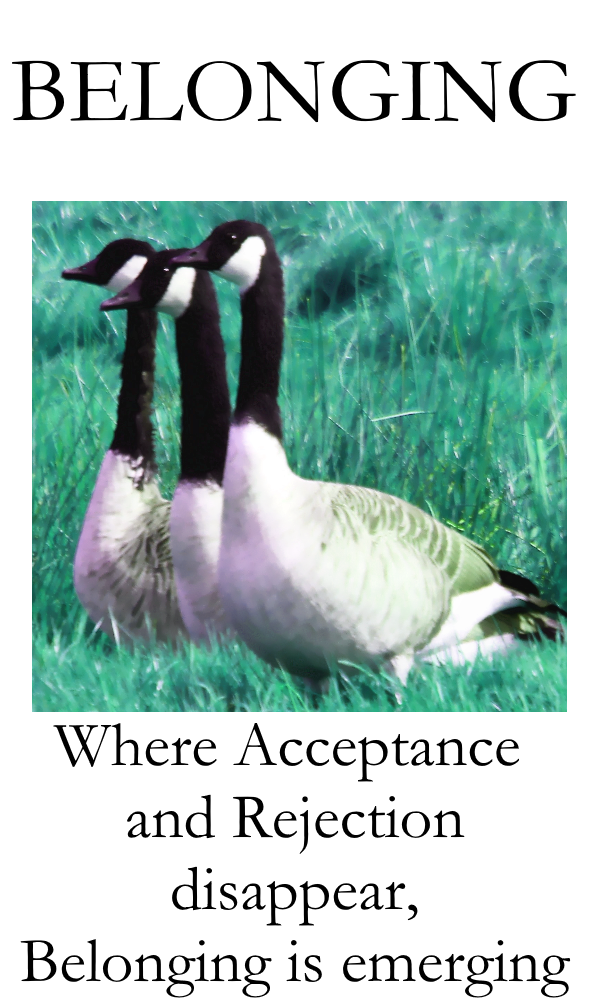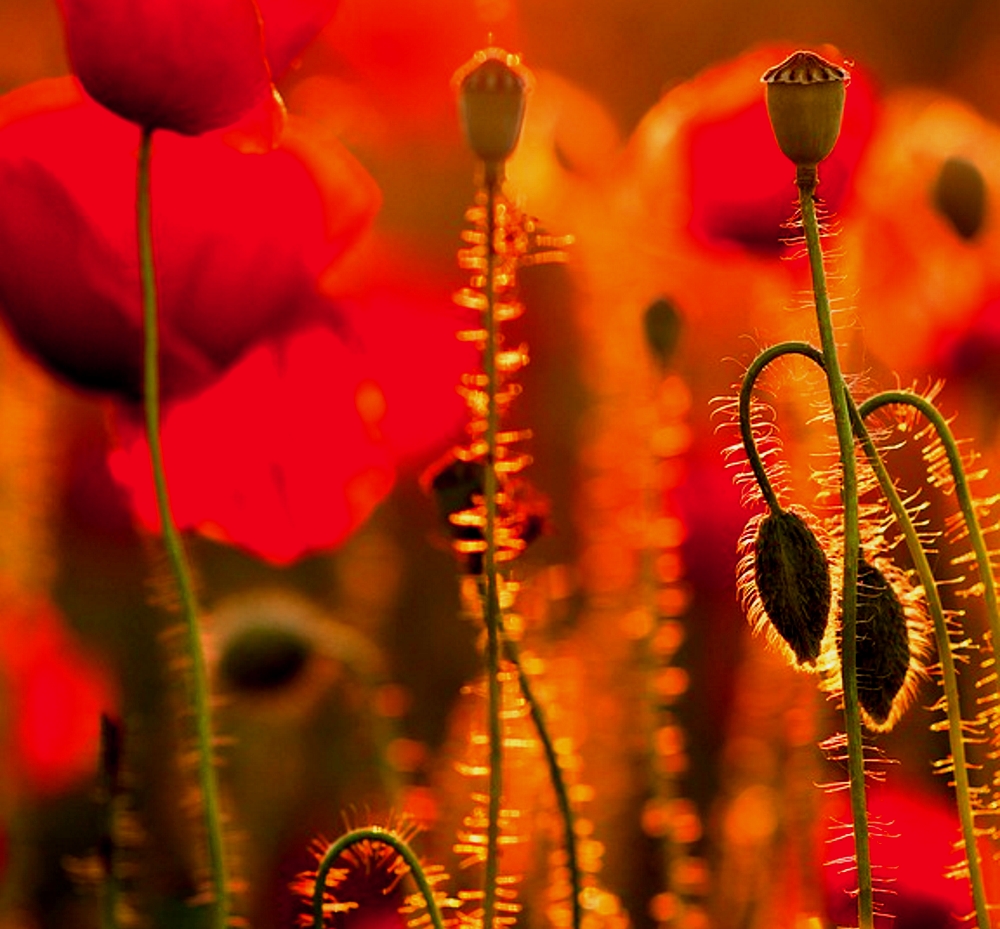“The partner of rejection is acceptance. Belonging has no opposite. In belonging, acceptance and rejection are one.”
Rejection
The pain of rejection can be so intense that we build fences of protection around ourselves to avoid feeling it. Rejection is an emergency, launching the whole system into survival mode.
Long-term, unconscious strategies against the threat of rejection involve anticipation, projection or obsession with the reactions of others; masking the natural expression of feelings and emotions. Such is the threat of the pain of rejection, that it’s directly linked to an organization of experience in terms of superiority and inferiority. Within this quest for the survival of the personal psyche, even equality can become an equality complex. The fear of rejection can also lead to a compulsive tendency to compare ourselves to others, to toxic competition. Where rejection is deeply disallowed, we can find that our client has internalized the threat, forming an inner judge and jury that pre-empts the risk of external rejection through self-criticism and condemnation.
The threat of rejection is a threat of expulsion – from the tribe on which we depend for survival. All the four collective fears of traditional psychology are linked to rejection: the fear of death – in nature, when a herd excludes one animal, it will probably die alone; the fear of illness – illness can be an underlying motive to reject a member of the herd; the fear of insanity – collectively, we reject those judged ‘crazy’; the fear of sexuality – rejection games play out between genders and over the gender issue, coupled with vast fields of rejection and projection around sexuality.
In this sense, the fear of rejection would appear to be a meta-fear: more powerful and overriding even than the threat of death. The pain of rejection goes with physical sensations – we literally seize up and contract around the wounding, as an emergency containment measure. It also has a mental sensation in the release of stress hormones that over-activate the brain’s control centers and vastly inhibit the firing of Mirror Neurons – so-called ’empathy neurons’. Emotionally, if we let it, the pain of rejection can feel like a hemorrhage of despair – we are literally bleeding out from the center of the chest.
As with physical pain, so it is with the pain of rejection. The moment we allow ourselves to feel the feeling, to recognize the wounding, even without the need for objectivity, we create space. That which can allow the feeling is already free from the feeling itself, no matter how intense. A spaciousness emerges through the allowance of our own sensitivity, which means we also become sensitive to beauty, to pleasure, to the blessings of the moment which are also here, together with the pain. In this, the tunnel vision of a traumatic state is potentially avoided, or at least reduced in its capacity to get a firm grip. We might have a sense of existential rejection, but it no longer determines our expression and direction. Our universe is bigger than that.
Acceptance
The horror of the pain of rejection can lead us on a perpetual quest for acceptance. Seeking safety outside of ourselves, we imagine acceptable behaviors and try to mimic them. We recruit others and attempt to please, contorting or repressing natural expression often to the extremes. All of this is to feel accepted as part of the whole. Yet, when we need to change our form to feel we belong, what kind of safety does that bring?
The attitude of acceptance can be helpful in the whole arena of communication, precisely because the atmosphere of rejection is so devastating. It helps establish rapport and affirm manifestation. Yet in the end, acceptance can also become a power-structure wielding the threat of rejection. That which can be accepted from the outside, can also be rejected. A shadow is cast. Acceptance has no meaning, unless there is a little rejection around.
Acceptance can antidote rejection, but also feeds the belief. Dependency on the acceptance of others risks keeping us addicted to the rush of feeling appreciated. We need ever increasing demand for reward to numb the pain. This can be a person we admire, or a source of reward in which we seem to receive public applause and appreciation. Yet the opioid source itself does not take away the pain, it simply kills its registration in the brain – temporarily. Physically seen, the knife is still in the chest! In the game of thrones, we can be sitting on the throne of omnipotence, yet for as long as we believe that the throne defines us, there is danger everywhere.
In time, over-dependency on acceptance to numb the pain of rejection will exaggerate the pain of rejection to alarming degrees. We get increasingly acceptance-tolerant, and although there may be all the acclaim of humanity towards us, this pain of rejection grows in equal proportions. We are no longer accepted for who we ‘really’ are, and we suffer intense loneliness. We feel rejected from our own self-image – one which we can never live up to. Each demand for the wonderful, acceptable side of us, is also an oppression of the “real” us – the one that feels irrationally rejected, cut off, and left alone in the darkness of the soul. Some famous people find their way through this, gracefully opening in authenticity and service to the whole. For others, the inner despair is only revealed to the public through tragedies of self-rejection such as addiction and/or suicide.
When we feel a prerequisite to accept others as they are, without space for altering manifestations of like and dislike, then this can also plummet through conformity to the sense of victimhood. Acceptance will often express as a pretense and will undermine personal boundaries. When we move with acceptance, we often also need to honor our own feelings and emotions within that, otherwise a situation can play out as self-abuse.

What comes first, the sense of belonging or the belonging? Can we sense something without it being here to be sensed?
Learn to recognize the inner scent of Belonging. Whether or not we feel it, we anyway, always belong. Before and behind the cruelest, kindest dances of acceptance and rejection we are here, holding the dance in the heart.
Sense the belonging and share it with every stranger and with the vast ocean of unknowing.
Beneath it all, let the stress and tiredness, the search and the striving, the regret and the missing, the anger and the fear know this belonging. Let the sense of belonging follow it all as a watchful parent shadows his child. And at the end of the day, let yourself fall into the rejuvenating space of this belonging – deeper than the earth, wider than the sky, more authentic than the purest thought.
“You discover that your longings are universal longings, that you’re not lonely and isolated from anyone. You belong.”
F. Scott Fitzgerald
The root of the word belonging is to be in the longing together. It is not an end-point or a closed circle, but a Nondual position which is always here. It is within this fact of belonging that the game of rejection and acceptance dances. These negotiations around form occur within the field of unconditional belonging and the more we can rest in this inherent sense of belonging, the less brutal the game of rejection and acceptance.
Imagine a typical family structure with the consensual black-sheep. She might look, feel and act differently from the rest. The family gets its sense of identity by this black-sheep. She begins to symbolize all they reject, and the family begins to depend on that to define itself. Does this family member belong less? Or is she filling a fundamental need in bringing honesty from the shadows of contracted family form?
Without the eccentric professor, the college cannot be itself. It would lose its quality and its richness. The eccentric belongs by itself, without question and precisely because it is manifesting outside the superimposition of standards of conformity.
When we are rejected, it is only possible because we already belong and will continue to belong. Rejection doesn’t exclude, it engages the object. Evolution is happening. When we are accepted, it is also because we belong, but sometimes this acceptance is a dynamic that seeks to force belonging and to keep it under control. In this way, inherent belonging has been hijacked by power agendas and conformity.
Every form that exists – including our most intimate expressions of self – belongs simply because it is. Regardless of the feelings or thoughts of others, it is part of the whole. Consider the enormous damage done to the environment through humanity’s assumption that it is possible to reject parts of it while accepting others. Also, this movement of rejection is creative. It adds energy to that which is rejected within the field of belonging, because nothing can fall outside of belonging, no matter how much we want it to. The evolution of superbugs in response to the introduction of antibiotics is one clear example of rejection not working out, but accentuating that which it claims to counter.
When we relax back in that pre-given belonging on this planet, in this nation, as an expression of this culture, within this group, from this family, then the pain of rejection is vastly relativized. This means that it becomes localized to something that’s happening in this moment in a specific context. It’s no longer an existential threat.
In our disconnection from belonging (being in longing together), we get confused and fall into the contraction of rejection-acceptance to try and attain belonging. The moment any player in the war relaxes into the field of belonging, an easiness comes forward which is inclusive, not exclusive, one that has space for difference in perspective and that loses its charge of cruelty. This is so very important, as the greatest players in this field of contraction are those who least feel they belong. The perpetrators are often the greatest victims, without even knowing it.
We belong in our bodies. We belong in the ocean of silence. We belong in unity to the space that allows us all to be. We belong as living beings. We belong to nature. We belong as expressions of all that is, through whatever form. No one can take this from us, but we can become desensitized to the experience of this fundamental source of nurture.
Affirmation:
Here, I am always, already Belonging
Connect to another Blessing of Being.



